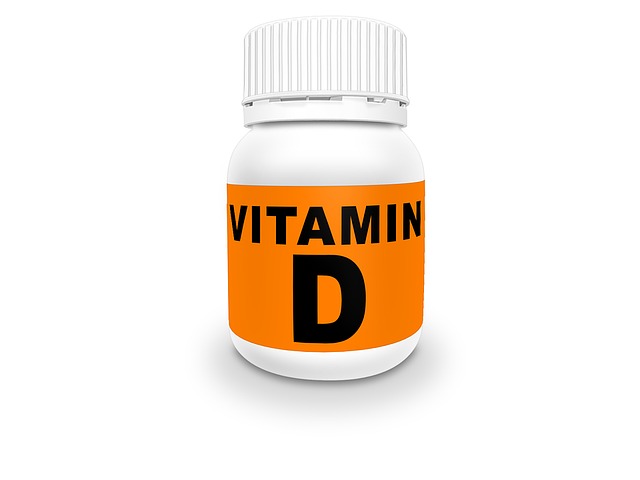This article explains how long does vitamin D supplements stay in the body, considering factors such as sun exposure, vitamin D metabolism, other considerations, single dose, and daily use and overdose.
How long vitamin D supplements stay in your body system is affected by several things. Sun exposure triggers vitamin D production in the skin.
Additionally, dietary factors can increase or decrease the amount of vitamin D you can absorb. Vitamin D is a fat-soluble vitamin, so a higher percentage of body fat can help keep vitamin D in your body for longer.
Vitamin D has a half-life in the body of about 2 to 3 weeks. This means that about half of the vitamin is usually eliminated from your body during this half-life.
However, it is important to note that complete elimination may take several months, and this time frame can vary greatly from person to person.
Some Other Considerations
There are two things that make it hard to know how long a vitamin D supplement will stay in your body.
First, your body naturally produces vitamin D when exposed to sunlight. It’s hard to tell the difference between naturally occurring vitamin D and vitamin D supplements in your blood.
Secondly, your body stores excess vitamin D in fat. If you take vitamin D supplements, some of that excess vitamin D could stay in your body for a long time if you don’t use it.
Single Dose
One way to get an idea of how long a vitamin D dose will remain in your system is to look at its effects over time after a single large oral dose.
A 2008 study published in the American Journal of Nutrition found that patients who received a single dose (100,000 International Units of CHOLECALCiferol) of vitamin D had an average of 84 days of elevated levels of calcium in their blood.
This indicates that vitamin D may remain in the blood for more than 84 days. However, the exact maximum amount of time a vitamin D dose can stay in your system is unknown.
Factors such as the level of parathyroid hormones in your body can also affect how long your vitamin D will stay in your system.
Vitamin D Metabolism
Vitamin D is a compound that is metabolized by the body to form vitamin D25, also known as vitamin D25-Calcium. Calcium is a chemical found in blood.
Calcium levels are used to measure vitamin D levels in the body. Calcium levels can also be used to track the effects of Vitamin D supplements.
Calcium is metabolized to 25-calcium, also known as Vitamin D25. Calcium 25-Calcium 25-D25 is a compound that has a half-life in the body.
A half-life is how long it takes for a compound to get rid of half of its body.
For example, if you take an oral vitamin D supplement, half of your vitamin D will leave your body after 15 days.
Only 25 percent of your vitamin will remain in your body after 30 days.
Vitamin D Daily Use and Overdose
If you take a daily vitamin D supplement, it may take up to a month for your vitamin D levels to stabilize. Talk to your doctor if you’re worried that you’re consuming too much vitamin D.
Too much vitamin D can lead to weight loss, heart palpitations, and urinary problems.
It can also increase calcium levels in your blood, which can cause heart, kidney, and blood vessel problems.
A Word From GetMe Treated
Vitamin D is essential for bone health, immunity, mental health, and disease prevention.
Vitamin D is found in your body through sun exposure, your diet, and your body fat percentage.
It is important to recognize vitamin D deficiency symptoms early and take the necessary steps, such as sun exposure, dietary changes, and vitamin D supplements.
However, it is important to be aware of the dangers of consuming too much vitamin D. Regular testing can help you maintain your optimal vitamin D levels and overall health.
FAQs Related To How Long Does Vitamin D Supplements Stay In The Body
Is vitamin D once a week enough?
For the short term, a higher weekly dosage may be prescribed to patients with severe vitamin D deficiency.
Which vitamin D is best?
The body absorbs vitamin D3 better. Vitamin D3 is naturally produced in the body by the sun.
What are the side effects of taking vitamin D once a month?
- Weakness
- Dry mouth
- Nausea
- Vomiting
What diseases are caused by low vitamin D?
Osteoporosis and fractures
What month should you stop taking vitamin D?
Late March and April to the end of September
How do you take vitamin D correctly?
It should be taken with a big meal, preferably a meal that includes foods high in fat such as nuts, seeds, and eggs.
Can I take vitamin D and C together?
Yes. When taken together, they are a powerful combination that can support the immune system
Other Helpful Blog Posts:
- How Long Does Vitamin K Stay In The Body?
- How Long Does Vitamin D Stay In The Body?
- 8 Best Natural Vitamins For Menopause Symptoms
- 6 Best Natural Vitamins For Sciatic Nerve Pain
- Can Vitamin C Serum Help With Hyperpigmentation And Dark Spots?
- Vitamin D Foods – Are You Getting Enough?
- Best Vitamins For Women

